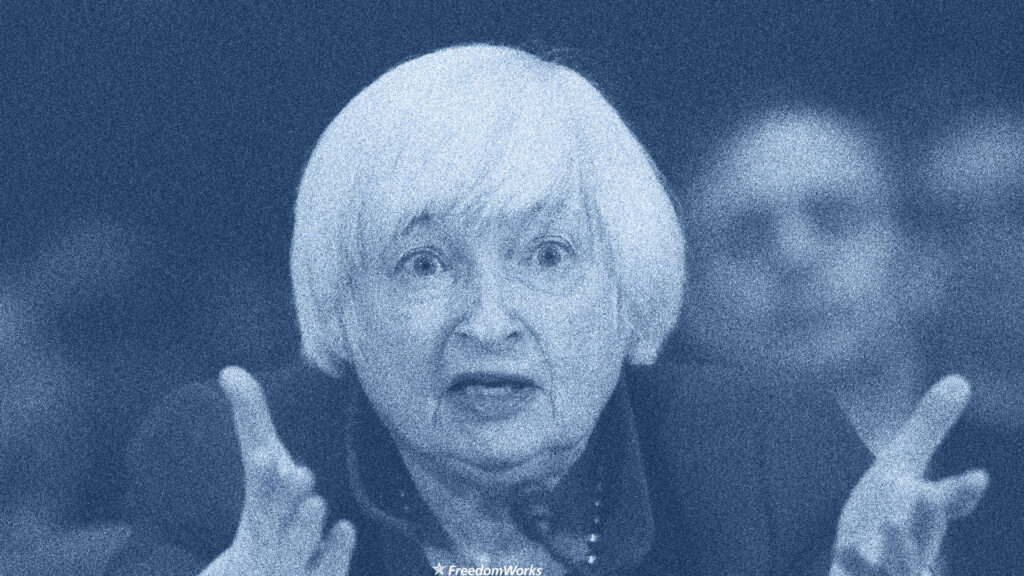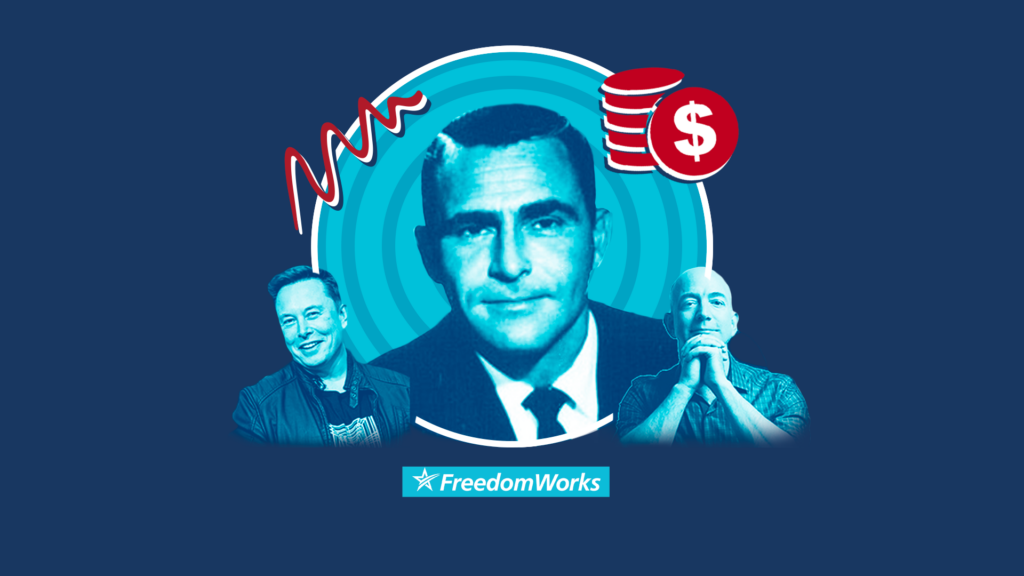Profiles in Liberty: Dr. Ron Paul
On January 12, the Federal Reserve Transparency Act (S. 2232) is scheduled for a vote in the Senate. Authorizing review by the Governmental Accountability Office of our nation’s monetary policy, the bill was introduced by Sen. Rand Paul (R-Ky.). But the bill’s final vote is arguably due to the legacy of the Senator’s father, former Rep. Ron Paul (R-Tex.), who championed the causes of sound money and central bank transparency over his 12-term career in Congress. Dr. Paul is the subject of this week’s Profiles in Liberty.
First elected in a 1976 special election to represent Texas’s 22nd Congressional district, Paul went on to serve three non-consecutive stints in Congress. During this time, his steadfast adherence to principle earned him the nickname “Dr. No.”
He never voted for a single tax increase or unbalanced budget. Oftentimes, the final roll call for a bill stood at 434 to 1.
Ron Paul was that one.
He never wanted to be a politician. “As a matter of fact, I was surprised I ever won… My wife warned me this was a dangerous project… She said you could end up getting elected,” Paul later remarked.
But the young obstetrician with a growing family was worried about the direction in which America’s politicians were steering the nation. While studying medicine, Paul became fascinated by economics, reading works by many Austrian school economists and pondering their theories of the business cycle.
When then-President Richard Nixon removed from the dollar its last link to gold in 1971, Paul was alarmed. He believed that if the expansion of a currency supply was not pegged to a commodity, politicians would no longer be constrained in their spending. Paper money was based on the decree of bureaucrats, hence the term fiat currency. Leaving the gold standard meant that a massive expansion of the federal government’s size and scope was sure to follow, as the Federal Reserve would predictably act as an enabling financier of Big Government projects. Forty years later, the validity of Paul’s early premonitions seems clear. “After that day, all money would be political money rather than money of real value,” explained Paul in a 2001 interview with Texas Monthly. “I was astounded.”
Few of us are possessed with enough courage to do more than yell at the television. But Paul — with a budding career and comfortable new life as a husband and father — chose to run for Congress. A congressional run would provide a platform to talk about Austrian economics. At first, he lost. But he persevered.
Then he won. And if running for Congress provided an avenue to warn against runaway monetary policy, winning a seat in Congress reinforced that warning.
Over three decades, Paul routinely introduced bills seeking central bank reform. From 1999 to his retirement in 2013, he regularly proposed bills mandating both the abolition of the Federal Reserve System and a regular external audit of the bank. Paul was written off as a quack and a “gold bug,” and these bills rarely had so much as a single co-sponsor.
The housing crisis of 2007 (which Paul argues was predicted by the Austrians) prompted many to explore alternative economic theories. Many Americans, including politicians, wondered to themselves how the opinion-makers and supposed experts in Washington, D.C. could have been wrong. Americans were told the low interest rates — facilitated by the Federal Reserve and enabling the housing boom — would lead to permanent prosperity. Why wasn’t the crash foreseen?
Paul’s 2008 and 2012 presidential runs drew attention to the cause of sound money. Grassroots enthusiasm pressured Congress to act. Finally, in 2009 Paul’s regimen paid off. H.R. 1207, which provided for a full external audit of the Federal Reserve, passed the House with 320 co-sponsors. A majority of both Republicans and Democrats voted in the affirmative. For the first time in 2012, the concept of an audit gained the endorsement of a major party presidential nominee in Mitt Romney.
In The Intellectuals and Socialism, Austrian economist Friedrich Hayek proposed a sort of hierarchy in the communication of ideas. First come the original thinkers, from which ideas originate. Intellectuals, armed with ideas, act to influence the “spirit of the time” or public opinion.
And ideas can be powerful things.
Ron Paul was an original thinker. We are the intellectuals, the grassroots. And as part of the grassroots, our role is to apply pressure to our elected officials.
So as Tuesday approaches, we pay our respect to Ron Paul — Dr. No, who stood alone, for principle. His efforts paid off, and it is because of his sacrifice, his willingness for seclusion in the political wilderness, that we should appreciate. Sen. Mitch McConnell (R-Ky.) described his relationship with Paul over the years: “I’ve always put politicians into two categories: they’re either here to make a point, or they’re here to make a difference. Ron Paul is the only one I know who made a difference by making a point.”




